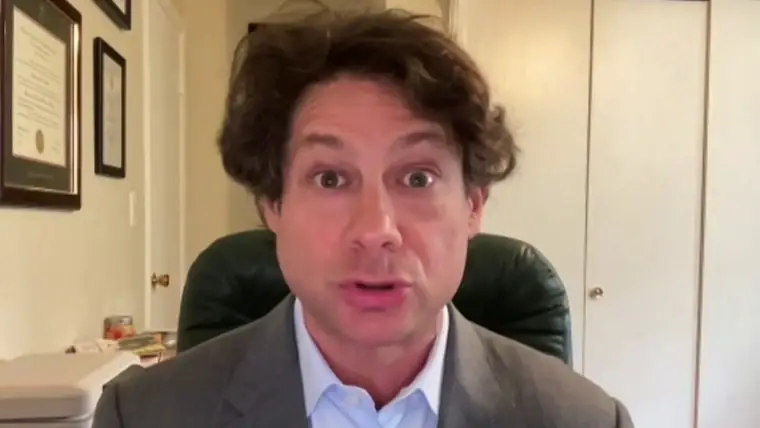
After Silicon Valley Bank failure, moderate Senate Democrats join GOP in resisting new bank rules
WASHINGTON — Moderate Senate Democrats who voted to loosen regulations on midsize banks in 2018 are standing by their votes in the wake of Silicon Valley Bank’s collapse, joining Republicans in resisting enhanced scrutiny for financial institutions.
Sen. Angus King, I-Maine, who caucuses with Democrats, said he wants to investigate “what actually happened in this case, and whether a different set of regulations would have mattered” before deciding whether the 2018 legislation was a mistake.
“I believe in ready, aim, fire — not ready, fire, aim,” King said.
King was among 17 members of the Democratic conference who voted with Republicans in 2018 to ease regulatory scrutiny on banks with assets between $50 billion and $250 billion, after an array of banks, including Silicon Valley Bank, lobbied for that relief.
Others who supported that bill, which was signed by then-President Donald Trump, gave a similar wait-and-see answer on regulation.
“I don’t want to embrace solutions until I hear the analysis,” said Sen. Tim Kaine, D-Va., who noted that existing law gives regulators space to “tailor” rules on banks from $100 billion to $250 billion.
Sen. Tom Carper, D-Del., and Sen. Jeanne Shaheen, D-N.H., both said they stand by their votes in favor of the 2018 deregulatory bill.
“It’s early. I think we need to complete the investigation of what actually happened at Silicon Valley Bank. All the regulation in the world isn’t going to fix bad management practices, and it appears that that’s one of the problems and SVB,” Shaheen said, while keeping the door open to revisiting the bill if the findings sway her.
“But depending upon the outcome, I think it’s appropriate for us to take a look at what we did and see if it still holds,” she said.
Asked if the 2018 bill was a mistake, Sen. Michael Bennet, D-Colo., responded: “I would say no. The work that I did on it was targeted toward small banks and toward rural banks.”
The moderate Democrats’ resistance to new bank regulation indicates a tough slog facing legislation unveiled this week by Sen. Elizabeth Warren, D-Mass. The bill would repeal the heart of the 2018 bill, which eased Dodd-Frank scrutiny imposed in 2010 by raising the "too big to fail" limit from $50 to $100 billion in assets.
Many Democrats are standing by their vote in 2018, arguing that the administration still had tools under existing law that could have better protected SVB’s position.
“Of course there were tools!” Warren said. “But the change in the law in 2018 was an open invitation from Congress for the Fed to weaken all of those rules — vote to eliminate some of them and to make the others much, much softer than they had been.”
“It is dangerous for us to leave the door open for regulators not to do their jobs. We need to close the door and tell them they’ve got to impose tough tests on these giant banks,” she said.
Senate Majority Leader Chuck Schumer, who voted against the 2018 measure, was noncommittal when asked if he supports the Warren bill: “We need strong legislation and hopefully we can put something together that’s bipartisan."
Fed should have regulated SVB better given ‘red flags,’ fmr. Treasury official says
March 13, 202306:20Even if the bill does achieve the 60 votes needed to clear the Senate, it faces a steeper climb in the Republican-controlled House.
While Democrats are split on the need for tougher bank rules, Republicans — who have long been the party of less regulation on financial institutions — are also resisting new legislation.
“I think it’d be premature to start talking about solutions before we fully define the problem, and in ultimately get answers from the regulators about why they were asleep at the job,” said Senate Minority Whip John Thune, R-S.D.
Sen. Katie Britt, R-Ala., firmly closed the door on creating new rules.
“No new regulations. We need the regulations that are on the books to actually be enforced,” she said.
Sen. Sherrod Brown, D-Ohio, who chairs the Banking Committee and voted against the 2018 law, said he’d “like to see” those rules re-established on banks. But he also said his priorities are working within the current framework to maximize enforcement.
“I opposed the bill before and we got rolled — by a lot,” Brown said. “And so I’m not stupid. I see how difficult that is. So I support those efforts, but most of my effort is going to be at the regulators to do the right thing here.”
Asked if he believes regulators had the tools they needed to prevent the collapses of Silicon Valley Bank and Signature Bank, Brown said, “I don’t know. That’s one of the things we want to know. I think that Congress and then Trump made it harder for the regulators to do their jobs.” He compared it to rail companies lobbying for more lax regulations before a train derails, like in East Palestine, Ohio.







